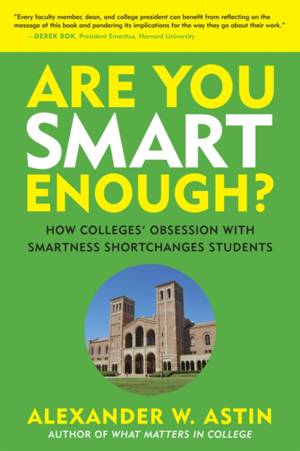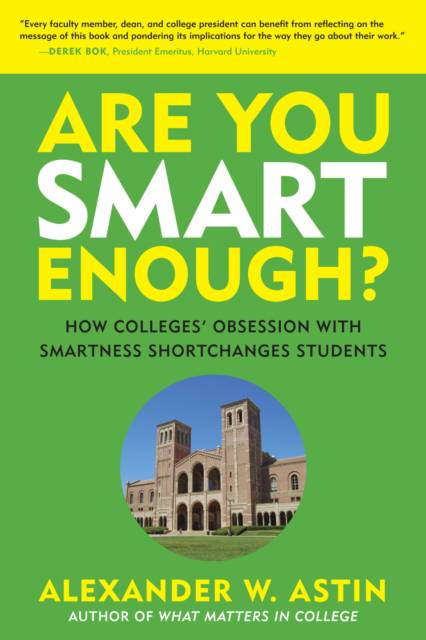
- Retrait gratuit dans votre magasin Club
- 7.000.000 titres dans notre catalogue
- Payer en toute sécurité
- Toujours un magasin près de chez vous
- Retrait gratuit dans votre magasin Club
- 7.000.0000 titres dans notre catalogue
- Payer en toute sécurité
- Toujours un magasin près de chez vous
Are You Smart Enough?
How Colleges' Obsession with Smartness Shortchanges Students
Alexander W AstinDescription
This book explores the many ways in which the obsession with "being smart" distorts the life of a typical college or university, and how this obsession leads to a higher education that shortchanges the majority of students, and by extension, our society's need for an educated population. The author calls on his colleagues in higher education to return the focus to the true mission of developing the potential of each student: However "smart" they are when they get to college, both the student and the college should be able to show what they learned while there.Unfortunately, colleges and universities have embraced two very narrow definitions of smartness: the course grade and especially the standardized test. A large body of research shows that it will be very difficult for colleges to fulfill their stated mission unless they substantially broaden their conception to include student qualities such as leadership, social responsibility, honesty, empathy, and citizenship. Specifically, the book grapples with issues such as the following: - Why America's 3,000-plus colleges and universities have evolved into a hierarchical pecking order, where institutions compete with each other to recruit "smart" students, and where a handful of elite institutions at the top of the pecking order enroll the "smartest" students.- Why higher education favors its smartest students to the point where the "not so smart" students get second-class treatment.- Why so many colleges find it difficult to make good on their commitment to affirmative action and "equality of opportunity."- Why college faculties tend to value being smart more than developing students' smartness (i.e., teaching and learning).
Spécifications
Parties prenantes
- Auteur(s) :
- Editeur:
Contenu
- Nombre de pages :
- 160
- Langue:
- Anglais
Caractéristiques
- EAN:
- 9781620364482
- Date de parution :
- 29-03-16
- Format:
- Livre broché
- Format numérique:
- Trade paperback (VS)
- Dimensions :
- 140 mm x 208 mm
- Poids :
- 181 g

Les avis
Nous publions uniquement les avis qui respectent les conditions requises. Consultez nos conditions pour les avis.






